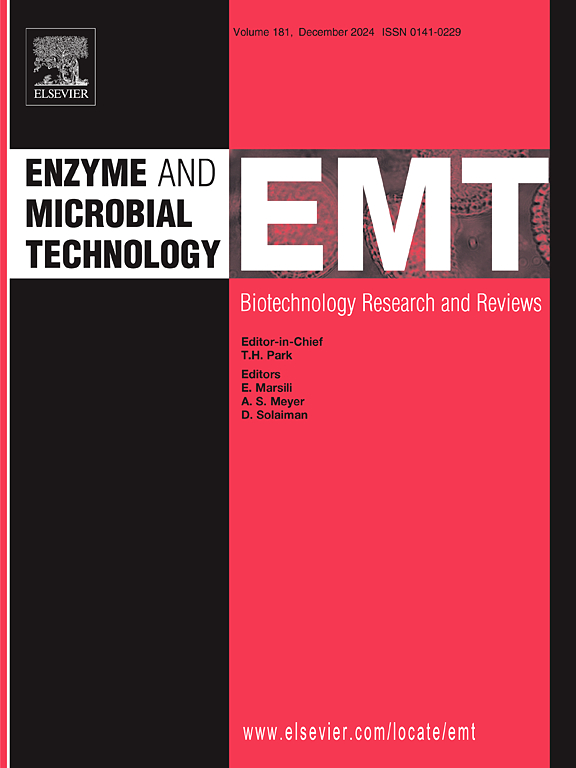Modulating UDP-glucuronosyltransferase activity: Mechanisms, clinical implications, therapeutic strategies, and future directions in drug development
IF 3.7
3区 生物学
Q2 BIOTECHNOLOGY & APPLIED MICROBIOLOGY
引用次数: 0
Abstract
UDP-glucuronosyltransferases (UGTs) are essential enzymes in the phase II metabolism of endogenous and exogenous compounds, playing a critical role in detoxification, drug metabolism, and clearance. Their function is crucial for the pharmacokinetics of numerous therapeutic agents, but UGT inhibition can result in altered drug metabolism, increased toxicity, or reduced efficacy. This review explores the mechanisms of UGT inhibition, its implications for drug metabolism and pharmacokinetics, and the clinical relevance of such inhibition in the context of drug-drug interactions (DDIs). We discuss the therapeutic strategies targeting UGTs, the impact of environmental and dietary factors on UGT activity, and the role of pharmacogenetics in modulating UGT function. Moreover, the review highlights the role of UGTs in xenobiotic detoxification and addresses the challenges in identifying and modulating UGT inhibition in drug development. Finally, we identify future research directions for understanding UGT inhibition and its clinical applications. By synthesizing recent advances in the field, this review provides a comprehensive overview of the dynamic role of UGTs in drug metabolism, offering insights for optimizing drug therapy and minimizing adverse interactions.
调节udp -葡萄糖醛基转移酶活性:机制、临床意义、治疗策略和药物开发的未来方向
udp -葡萄糖醛酸糖基转移酶(UGTs)是内源性和外源性化合物II期代谢的必需酶,在解毒、药物代谢和清除中起关键作用。它们的功能对许多治疗药物的药代动力学至关重要,但UGT抑制可导致药物代谢改变,毒性增加或疗效降低。这篇综述探讨了UGT抑制的机制,它对药物代谢和药代动力学的影响,以及这种抑制在药物-药物相互作用(ddi)背景下的临床相关性。我们讨论了针对UGT的治疗策略,环境和饮食因素对UGT活性的影响,以及药物遗传学在调节UGT功能中的作用。此外,该综述强调了UGT在外源解毒中的作用,并解决了在药物开发中识别和调节UGT抑制的挑战。最后,对UGT抑制及其临床应用的研究方向进行了展望。本文通过综合该领域的最新进展,全面概述了ugt在药物代谢中的动态作用,为优化药物治疗和减少不良反应提供见解。
本文章由计算机程序翻译,如有差异,请以英文原文为准。
求助全文
约1分钟内获得全文
求助全文
来源期刊

Enzyme and Microbial Technology
生物-生物工程与应用微生物
CiteScore
7.60
自引率
5.90%
发文量
142
审稿时长
38 days
期刊介绍:
Enzyme and Microbial Technology is an international, peer-reviewed journal publishing original research and reviews, of biotechnological significance and novelty, on basic and applied aspects of the science and technology of processes involving the use of enzymes, micro-organisms, animal cells and plant cells.
We especially encourage submissions on:
Biocatalysis and the use of Directed Evolution in Synthetic Biology and Biotechnology
Biotechnological Production of New Bioactive Molecules, Biomaterials, Biopharmaceuticals, and Biofuels
New Imaging Techniques and Biosensors, especially as applicable to Healthcare and Systems Biology
New Biotechnological Approaches in Genomics, Proteomics and Metabolomics
Metabolic Engineering, Biomolecular Engineering and Nanobiotechnology
Manuscripts which report isolation, purification, immobilization or utilization of organisms or enzymes which are already well-described in the literature are not suitable for publication in EMT, unless their primary purpose is to report significant new findings or approaches which are of broad biotechnological importance. Similarly, manuscripts which report optimization studies on well-established processes are inappropriate. EMT does not accept papers dealing with mathematical modeling unless they report significant, new experimental data.
 求助内容:
求助内容: 应助结果提醒方式:
应助结果提醒方式:


